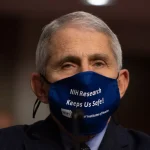Senate Minority Leader Charles Schumer (D-N.Y.) is facing competing pressure points as he weighs one of the biggest questions he’ll face if Democrats win back the majority: whether or not to nuke the filibuster.
Democrats — increasingly within striking distance of regaining the Senate — are plotting an ambitious agenda if they have control of Congress and the White House for the first time since 2010.
But the 60-vote legislative filibuster stands in the way of some of the biggest items on their to-do list, including ethics and election reform, immigration, health care and climate change legislation.
Schumer is under fierce pressure from progressives, both on and off Capitol Hill, to nix the filibuster. They argue keeping it intact gives Republicans a veto on their agenda.
“Are Democrats going to let the legislative filibuster get in the way of our agenda?” asked Angel Padilla, the national policy director for the progressive group Indivisible.
Sen. Jeff Merkley (D-Ore.) described some senators as still trying to “cling” to the supermajority forced by the filibuster as something that could create room for compromise in an increasingly partisan Washington, D.C.
“[But] the rigged rules add to demographic imbalance. Forty-one Republican senators representing states that comprise less than a quarter of America’s population can veto Democrats’ legislation for the people,” Merkley wrote.
Just a few years ago, more than 30 Democratic senators signed a letter to Senate leadership supporting the filibuster.
But nixing the legislative filibuster — by bumping it down to the simple majority currently required for nominations — has gained slow, but steady, traction with Democrats as they’ve plotted how to enact their legislative priorities if they win in November and face growing pressure from their progressive flank to go big.
Sen. Dick Durbin (D-Ill.) — Schumer’s No. 2 who said in early 2019 that the Senate has a “responsibility to protect the minority” — said he is “leaning” toward supporting nixing the legislative filibuster and that “a lot of us have been thinking about” what to do.
“I will tell you, I have been frustrated for a hell of a long time because of this filibuster,” Durbin told Yahoo News’s “Skullduggery” podcast.
Schumer, who is up for reelection in 2022, has opened the door to nixing the filibuster, arguing that Democrats won’t let Republicans block their agenda if they win back the White House and Senate, and hold on to the House majority, in November.
“We have a moral imperative to the people of America to get a whole lot done if we get the majority, which God willing we will, and keep it in the House, and Biden becomes president, and nothing is off the table. We will do what it takes to get this done,” Schumer said this month.
“I’m hopeful, maybe if Trump goes and [Senate Majority Leader Mitch] McConnell is no longer leader, some Republicans might work with us. But we’re going to have to get it done whether they work with us or not,” he added.
The New York Times, citing Democrats who have spoken with Schumer, described him as “reluctant” to get rid of the filibuster but polling colleagues on what he should do. A spokesman for Schumer didn’t respond to a request for comment.
If Democrats win the majority in November, it would mark Schumer’s first time being majority leader, after becoming Democratic leader in 2017 when Senate Majority Leader Harry Reid (D-Nev.) retired. Democrats, on Schumer’s watch, have united at crucial moments during the President Trump era, including blanket opposition to the GOP health care and tax plans in 2017 and for removing Trump from office during the impeachment trial earlier this year.
His openness to nixing the filibuster has caught the attention of progressives, who view it as a sign that they’ve gained steam.
“Schumer is a good barometer of just how much the center of gravity is changing,” said Adam Green, the co-founder of the Progressive Change Campaign Committee, adding that Schumer “goes where the votes of the caucus are.”
Schumer pledged, during his convention speech last week, that Democrats would “stay united” and “with our unity, we will bring bold and dramatic change to our country.”
But Capitol Hill veterans and activists acknowledge Schumer will face new challenges if Democrats win back the Senate.
“Hope springs eternal, but the reality is that it’s easy to imagine two or three Senate Democrats that are going to be playing hard to get depending on the issue,” said Jim Manley, a longtime aide for Reid.
And getting rid of the legislative filibuster would test that unity. If Democrats win back the Senate, their majority is expected to be narrow, meaning they will need almost if not every vote to invoke the “nuclear option,” which would let them lower the filibuster threshold with only a simple majority.
Several Democratic senators have warned they aren’t on board with gutting the filibuster, though they would likely face intense pressure to flip-flop if they find themselves in the majority starting in January.
Skeptics of nixing the legislative filibuster include longtime institutionalists like Sen. Dianne Feinstein (D-Calif.); Sen. Angus King (I-Maine), who caucuses with Democrats; and Sens. Kyrsten Sinema (D-Ariz.), Jon Tester (D-Mont.) and Joe Manchin (D-W.Va.), who all represent states that Trump won in the 2016 election, though polls show a tight race this year in Arizona.
“I do not support getting rid of the filibuster. And Chuck Schumer knows that. We have had conversations about that,” Manchin said during an interview with Fox News late last week.
Hanging over the debate is Democratic presidential nominee Joe Biden, who spent 36 years in the Senate and expressed hope that he’ll be able to use his decades-long relationships to thaw the partisan gridlock on Capitol Hill and cut big bipartisan deals that have been elusive in recent years.
Sen. Tim Kaine (D-Va.), during a Politico event, predicted that Biden would likely face the same GOP entrenchment that President Obama faced, though he acknowledged that the former vice president has a defter feel for the Senate, where he spent most of his adult life.
“He is a creature of the Senate. … And so can I guarantee you he’ll make it work better? No. But if anybody can make it work better, Joe Biden is the person who can,” he said.
Manley, who had a front-row seat to the chamber’s growing dysfunction, was more skeptical.
“I hope that no one, including the vice president and his team, expect Sen. McConnell to turn on a dime and become a partner in trying to forge compromises,” he said. “Because he’s not changing.”
Biden has opened the door to supporting an effort to end the legislative filibuster, though he still appears hesitant. He has said it would “depend on how obstreperous” Republicans are.
“I just don’t believe you’re going to have this kind of resistance … that we had before. If in fact they are as obstreperous as is expected, we’d have to get rid of the filibuster, but the filibuster has also saved a lot of bad things from happening too,” Biden said during an interview earlier this month with Black and Hispanic journalists.
His support would likely be crucial for locking down the Democratic votes to nix the filibuster, with Manley predicting it would come down to centrists and Biden.
“If the vice president decides he’s going to support the effort to eliminate, he’s going to have to work real hard to pick up the last couple of votes,” he said.
Story cited here.
























